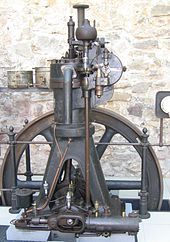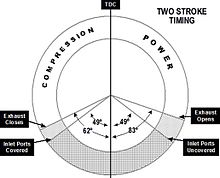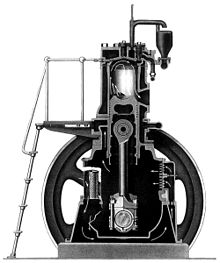WHICH ONE IS BETTER PETROL OR DIESEL?
While buying a car, one of the key decisions one has to make is to decide between a Petrol & Diesel vehicle. While there is no simple answer for this debate, the following points can help you reach a decision:
- Cost of Car
The diesel variant of cars cost more than the petrol variant. For cars which cost less than 10 Lakhs, the showroom price between diesel and petrol variants differs from 1 to 1.5 Lakhs. The difference in the on-road price of petrol and diesel car variants will be even more. This is because the cost of registration for the diesel car is more than that of the Petrol car; the difference is about 1 to 3% depending on the cost of the vehicle and the State where it is purchased.
- Average or Mileage
The mileage of diesel engine is more than that of a Petrol engine. A diesel engine does not need a spark plug and thus has higher compression. This makes the diesel engine utilise more fuel as compared to a petrol engine. The better mileage of a diesel engine makes it easy to cover the extra cost of the car paid initially, but with increasing cost of cars, the time required to recover this cost has increased.
- Cost of Fuel
At present, per litre cost of diesel is about Rs. 15 less than that of petrol. After the partial deregulation of diesel price in 2013, there has been a gradual fall in the difference from 21 rupees in 2013 to approx. 10 rupees in 2014. So there is no concrete base to say that there will be a price difference between the two in the forthcoming years as well.
- Smooth Drive
Diesel engines are more powerful than petrol engines. They also have a higher torque and hence they give a smoother drive. On the other hand, the harshness, noise, and vibrations in diesel driven cars are way higher than that of a petrol-driven car.
- Maintenance
The maintenance cost of diesel cars is higher than petrol cars. This is because consumables like engine oil and spares used in diesel vehicles are more expensive. The resale value of a used diesel car is higher than that of a petrol car. However, the life of a petrol engine is more than a diesel engine.
So now that you have the pros and cons of both these vehicles, hope you can choose the one that suits your requirements better.
Whichever vehicle you choose, make sure that you are carrying all the documents including your Car Insurance. To avoid confusion while buying a car insurance, compare car insurance policies online before making a choice. You can check car insurance quote online.
PETROL ENGINE
A petrol engine (known as a gasoline engine in American English) is an internal combustion engine with spark-ignition, designed to run on petrol (gasoline) and similar volatile fuels.
In most petrol engines, the fuel and air are usually mixed after compression (although some modern petrol engines now use cylinder-direct petrol injection). The pre-mixing was formerly done in a carburetor, but now it is done by electronically controlled fuel injection, except in small engines where the cost/complication of electronics does not justify the added engine efficiency. The process differs from a diesel engine in the method of mixing the fuel and air, and in using spark plugs to initiate the combustion process. In a diesel engine, only air is compressed (and therefore heated), and the fuel is injected into very hot air at the end of the compression stroke, and self-ignites.
DIESEL ENGINE
The diesel engine (also known as a compression-ignition or CI engine), named after Rudolf Diesel, is an internal combustion engine in which ignition of the fuel which is injected into the combustion chamber is caused by the elevated temperature of the air in the cylinder due to mechanical compression (adiabatic compression). Diesel engines work by compressing only the air. This increases the air temperature inside the cylinder to such a high degree that atomised diesel fuel that is injected into the combustion chamber ignites spontaneously. This contrasts with spark-ignition engines such as a petrol engine (gasoline engine) or gas engine (using a gaseous fuel as opposed to petrol), which use a spark plug to ignite an air-fuel mixture. In diesel engines, glow plugs (combustion chamber pre-warmers) may be used to aid starting in cold weather, or when the engine uses a lower compression-ratio, or both. The original diesel engine operates on the "constant pressure" cycle of gradual combustion and produces no audible knock.
The diesel engine has the highest thermal efficiency (engine efficiency) of any practical internal or external combustion engine due to its very high expansion ratio and inherent lean burn which enables heat dissipation by the excess air. A small efficiency loss is also avoided compared to two-stroke non-direct-injection gasoline engines since unburned fuel is not present at valve overlap and therefore no fuel goes directly from the intake/injection to the exhaust. Low-speed diesel engines (as used in ships and other applications where overall engine weight is relatively unimportant) can have a thermal efficiency that exceeds 50%.[1][2]
Diesel engines may be designed as either two-stroke or four-stroke cycles. They were originally used as a more efficient replacement for stationary steam engines. Since the 1910s they have been used in submarines and ships. Use in locomotives, trucks, heavy equipment and electricity generation plants followed later. In the 1930s, they slowly began to be used in a few automobiles. Since the 1970s, the use of diesel engines in larger on-road and off-road vehicles in the US increased. According to the British Society of Motor Manufacturing and Traders, the EU average for diesel cars accounts for 50% of the total sold, including 70% in France and 38% in the UK.[3]
The world's largest diesel engine put in service in 2006 is currently a Wärtsilä-Sulzer RTA96-C Common Rail marine diesel, which produces a peak power output of 84.42 MW (113,210 hp) at 102 rpm.[4][5]
-Rudolf Diesel
(Founder of Diesel engine)



























Thanks this was really helpful
ReplyDeleteGreat knowledge, do anyone mind merely reference back to it best price diesel engine
ReplyDelete